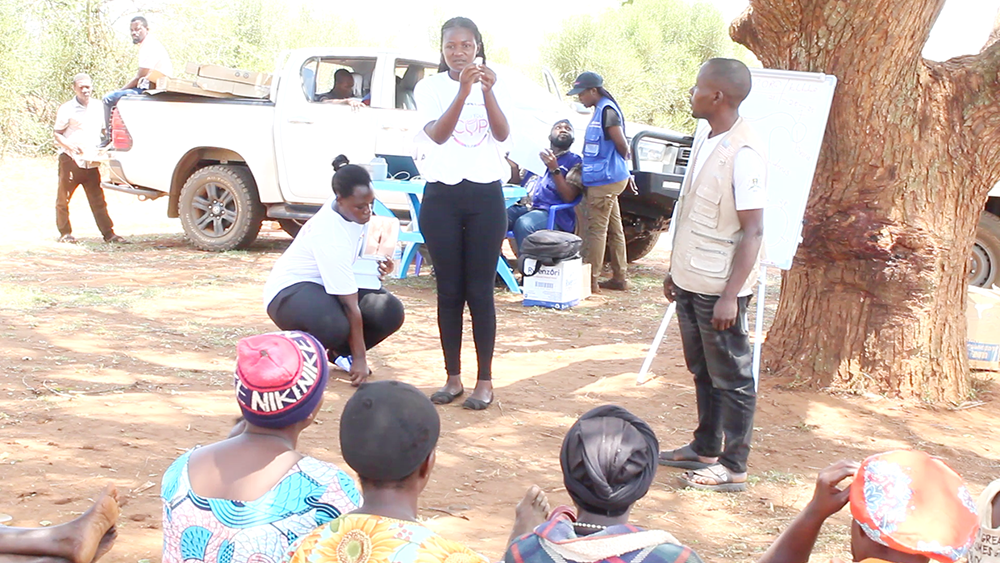For many women living in Uganda’s Nakivale Refugee Settlement, managing their monthly periods has long been a painful struggle.
In a place where clean water, money, and sanitary products are scarce, menstrual hygiene often becomes a daily battle marked by shame and discomfort.
For years, women like Francine Kyikuru and Rehema Jantie, refugees from the Democratic Republic of Congo, relied on torn pieces of cloth or old kitenge fabric during their menstrual periods.
The lack of proper materials and the long distance to water sources made it difficult to maintain hygiene.
“Getting water to clean our towels was difficult.
It’s a two-hour walk to the nearest water source,” said Francine. “Sometimes, I would feel sick after washing them. But since I started using a menstrual cup, everything has changed.”
Relief has finally arrived through an initiative by Could You? Cup, a humanitarian organization promoting menstrual health in refugee communities, supported by ALIGHT and Rotary Club of Kitukutwe.
The program distributes menstrual cups — small, reusable silicone cups — and teaches women how to use and clean them safely.
For many women in the camp, these cups have been life-changing.
“I can now move freely even during my period,” Francine said with a smile. “The cup doesn’t leak, it’s easy to clean, and I don’t have to worry about stains anymore.”
Rehema shared a similar story. She said washing reusable pads in Nakivale was nearly impossible because of the limited water supply.
“We fetch water from dams, and it takes hours,” she explained. “Now with the cup, I only need a little water to clean it. It has given me peace.”
Ms. Moris Ninsiima, the Rotary President of Kitukutwe, says the project aims not only to provide menstrual products but also to fight the stigma surrounding menstruation.
“We want women to feel confident and free from shame,” she said. “Many girls used to skip school or stay indoors because they feared stains. That is now changing.”
She added that the initiative also engages men and boys to help end menstrual taboos and support women in their communities.
“Men need to understand that menstruation is natural, not shameful. When men are supportive, women feel more respected,” Ninsiima added.
Ms. Sharon Asiimwe Musimenta, a team leader from Could You? Cup, explained that the menstrual cup is a long-term and eco-friendly solution to period poverty.
“A single cup can last up to ten years,” she said. “It’s cost-effective, safe, and uses less water than reusable pads. That makes it perfect for refugee communities.”
Since the program began, dozens of women in Nakivale have reported improved health, confidence, and participation in daily activities such as farming, trading, and community work — even during their menstrual cycles.
What once caused pain and embarrassment is now becoming a symbol of empowerment and dignity. Women who once hid during their periods now walk with confidence, thanks to a small but powerful innovation.
“Menstrual cups have restored our dignity,” said Francine. “We no longer feel like outcasts. We are women — and we are proud again.”



